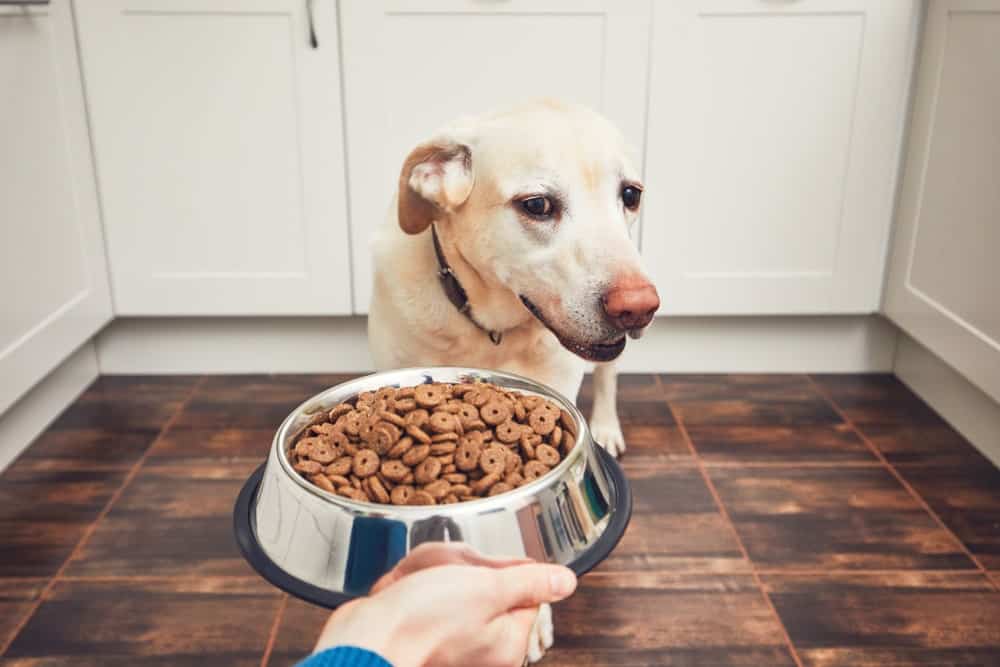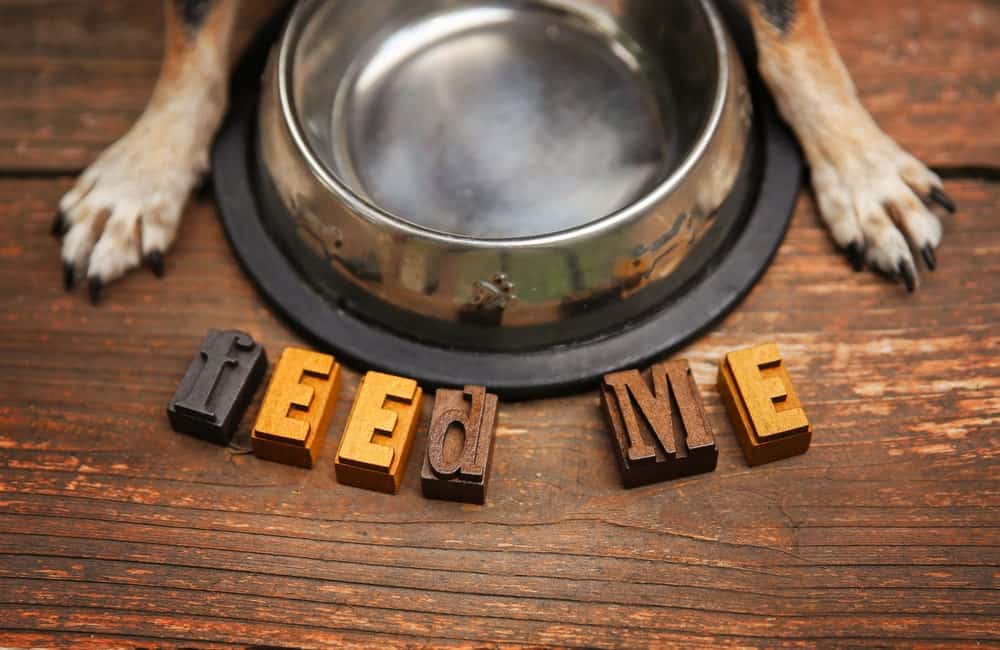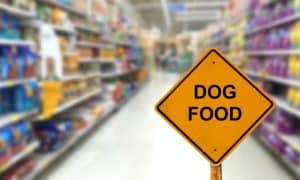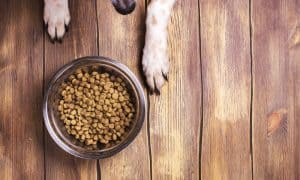“This post contains affiliate links, and I will be compensated if you make a purchase after clicking on my links.”
by Dr. Laura Duclos
Pet parents take great pride in giving their pup the healthiest and happiest life, so it’s no wonder that new products and diets continually flood the market. The problem is distinguishing what is healthy for your dog from the hype.

Among the diets popping up, alongside exotic ingredient diets like kangaroo and chickpeas, grain-free dog food fills a sizable chunk of the marketplace. The grain-free popularity took a turn in 2018 however after the FDA announced it had begun investigating new reports of canine dilated cardiomyopathy (DCM) and its potential link to grain-free dog food. The concern centered around cases where dogs not previously predisposed to the disease had been diagnosed with DCM.
What Breeds Are Prone to Get the Heart Disease Associated with Grain-Free Diets?
Some breeds, especially large and giant breeds, have a predisposition to DCM. These breeds include Doberman Pinschers, Great Danes, Newfoundlands, Irish Wolfhounds, and Saint Bernards. While DCM is less common in medium and small breeds, English and American Cocker Spaniels are also predisposed to this condition.
When early reports from the veterinary cardiology community indicated that recent, atypical cases in breeds like Golden Retrievers, Labrador Retrievers, Whippets, Bulldogs, and Shih Tzus all consistently ate grain alternatives in their diets, the FDA took notice.
The grain alternatives being closely scrutinized are lentils, peas, and potatoes–common substitutions used in grain-free dog food. So the issue wasn’t the lack of grain, but rather the plant-based food used in the recipes as an alternative.
What Started the Grain-Free Trend?
There are likely several factors at play, but the popularity of grain-free dog food gained traction around the same time as human grain-free dietary trends like the paleo diet hit the scene. Health-conscious pet parents naturally want to ensure that their pets eat just as well as they do, but what’s healthy for humans isn’t necessarily nutritiously balanced for dogs. And dietary requirements can be vastly different from pup to pup–even if they are the same breed and age. Many factors need to be considered when formulating healthy dog food.
Another possible contributing factor was likely the melamine pet food recall in 2007. Some kibble manufacturers used grain fractions (eg, wheat gluten) contaminated with melamine from China. This caused kidney disease in a lot of pets. Pet parents turned to grain-free dog food believing it to be a safer, healthier option for their pets.
Is a Grain-Free Diet Helpful or Harmful?
There’s no reason to expressly avoid grains unless your dog has a specific intolerance to them or some condition that requires a diet low in carbohydrates. And grain-free dog food can be harmful to dogs when coupled with a high-protein diet.
A high-protein, high-fat diet may have long term effects, such as harm to the kidneys which become over-taxed attempting to flush out excess through the urinary system. Unless grain-free dog food is required for specific health concerns (ie, weight management, diabetes, cancer, inflamed gut), a dog’s diet should include the appropriate balance of grains.
Since there has been a link to cardiomyopathy, be sure to check with your veterinarian if your pup has a history or is predisposed to heart disease. These diets are not recommended for any breed predisposed to heart disease.

What Is the ‘Right’ Amount of Grain for a Dog’s Diet?
While grains may not be right for every pup, they are a nutritious source of lean protein, vitamins, and minerals. High-quality, whole grains can support the growth of beneficial bacteria in the gut, and in managing large and small bowel disease. The can also help pups feel full longer, which can be a successful strategy in managing weight for some pups.
As with any healthy diet, the proper balance of nutritional ingredients is essential for optimal health. Too much or too little of an ingredient can have an impact on the health of your dog.
High Percentage of Grains: An excess of fiber-rich grains can dilute the nutrients creating meals that lack the nutritional requirements. And certain fiber types decrease a pup’s ability to absorb minerals in their food. A grain-packed meal may also deliver more carbohydrates than is healthy, resulting in weight gain and other health concerns. In addition, some low-quality pet food manufacturers can overdo it. Grains are cheaper than meat-based ingredients, so they may use more in their recipes than is beneficial for pups.
Low Percentage of Grains: For active pups that need the energy provided by plenty of healthy carbohydrates, food low in carb-rich grains will result in lethargy unless supplemented with other healthy plant-based carbs. In addition, fiber found in grains and other plant-based ingredients is necessary to support the elimination process. Diets low in grains and other carbs are generally higher in fat, which can put stress on the pancreas and certain liver conditions.
The quality of grains is also very important to consider. Some products on the market are packed full of highly processed grain which strips the food of powerful nutraceutical properties and beneficial phytonutrients. Whole grains, as opposed to cheap, over-processed fillers, can contribute valuable nutrients to canine diets, including vitamins, minerals, essential fatty acids, and fiber that are naturally present in high-quality grains like brown rice, oats, and teff.
Whether you are considering a grain-free dog food or not, it’s best to work with your veterinarian or a pet nutritionist to understand your pup’s specific dietary needs and what the best dog food is to support them. If your dog has health considerations, another option is ordering personalized dog food. Not only is it a simple way to take the guesswork out of mealtime, but many dog food delivery services bring nutritious and healthy dog food right to your door.
Ultimately, it’s not a question of grain-free or not, but understanding the right balance of ingredients for your pup’s unique dietary needs.
Dr. Laura Duclos leads the Research and Development team at Puppo. She has over 16 years of experience in developing nutritional pet food that supports animal health and wellbeing. Her clinical research has been featured in prominent publications and scientific journals. She has been an invited speaker at numerous international veterinary conferences on pet nutrition and innovation.



















Pet Supplies
Mar 19, 2020 at 11:29 am
This is the best information thank you so much for sharing. I also bought a Pet Supplies with the help of the Barkbox Promo Code and this is the best way to buy a pet with a discount. Well, I hope this article has helped you and I hope it has shed some light on the challenge of saving money on your pet supplies regardless of whether you use pet supply store or an online store. And your information is best Thank you so much for sharing.
Ursula White
Aug 19, 2019 at 1:45 pm
Statements like “There’s no reason to expressly avoid grains unless your dog has a specific intolerance to them or some condition that requires a diet low in carbohydrates. And grain-free dog food can be harmful to dogs when coupled with a high-protein diet” just come across as contradictory. I know you guys mean well and only want the best for our dogs, but the FDA itself isn’t recommending a dietary switch. Because the case study on which the report was based DID NOT ESTABLISH a link between DCM and grain-free pet foods. Therefore, we shouldn’t freak out, nor feed the ongoing panic more by making vague statements. There are many helpful posts by experts on this. Let’s read up more and be critical. Anyway, here’s hoping the federal government steps in and investigates the allegations that the FDA report team involved in this study have ties with certain big-name brands.